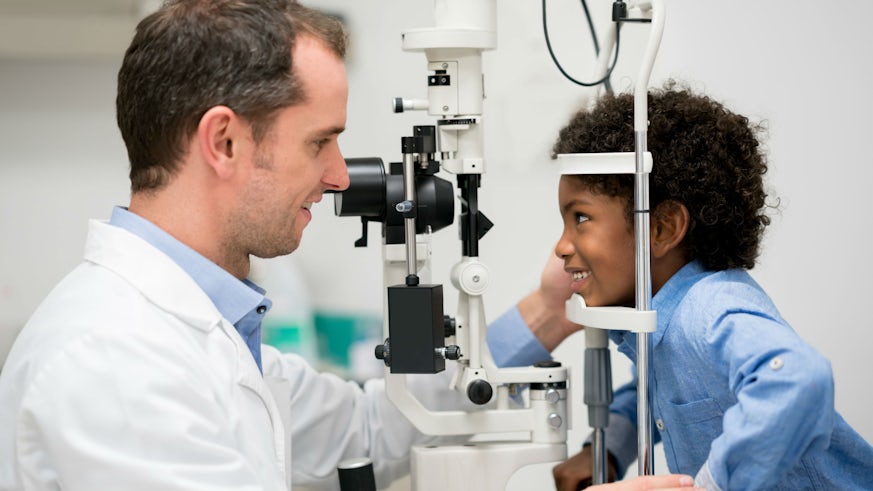Researchers take first step towards genetic test for childhood short-sightedness
15 November 2019

Researchers from the Universities of Cardiff and Bristol have devised a test that could in future help to identify children at risk of developing a very common eye condition.
Short-sightedness, or myopia, usually develops during childhood and is thought to affect up to one in three people in the UK.
The condition - which is increasing in prevalence worldwide - occurs when the eye grows too long, meaning light does not focus on the light-sensitive retina, causing distant objects to appear blurred.
Myopia is easily detected with an eye test and corrected with use of glasses or contact lenses but, more worryingly, it increases the risk of eye disorders, such as glaucoma, cataracts and degenerative changes to the retina.
Current treatments cannot halt its onset but can slow progression, meaning a genetic test could be key to early intervention.
The researchers analysed genetic differences in more than 700,000 individuals, allowing them to come up with a score to predict an individual’s genetic risk of myopia.
Professor Jeremy Guggenheim, from Cardiff University’s School of Optometry and Vision Sciences, who co-led the study, said their team could now identify one in 10 individuals who were six times more likely than average to develop severe short-sightedness by the time they reached adulthood.
Professor Guggenheim said: “Treatments are available for slowing down the progression of short-sightedness. Knowing a child is at high risk would help parents and clinicians decide if treatment should be started.”
Cathy Williams, a paediatric ophthalmologist from Bristol Medical School, who co-led the study, said: “A genetic test can be carried out at any age, so a test like this - for a high risk of myopia - could give children who are likely to become very short-sighted a head start if carried out when they are young and if there are effective suitable treatments.”
The research was carried out using data from the UK Biobank, which is a major study into the health and wellbeing of 500,000 people, and in a separate group of individuals from the Avon Longitudinal Study of Parents and Children (ALSPAC), which is a large-scale birth study.
Previously, the Cardiff and Bristol team have shown that every year of education increases the risk of developing short-sightedness.
It is hoped the latest findings, published in the journal JAMA Ophthalmology, could be the first step on the road to a genetic test for severe myopia.
Further work, such as analysing an even larger scale genetic sample, would be needed to make the test a reality.
Share this story
The School is dedicated to providing a dynamic and stimulating learning environment informed by its leading research in optometry and vision science.


